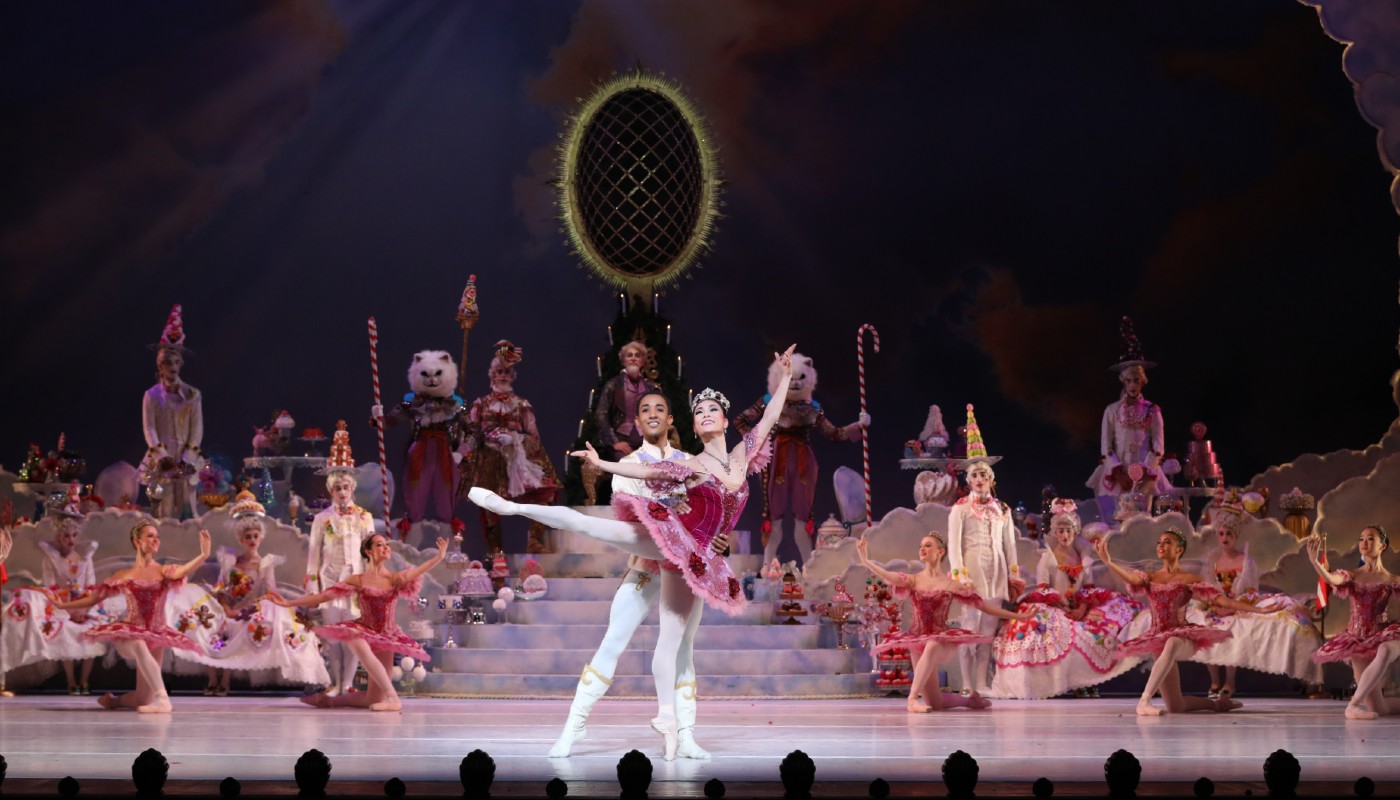Houston's Weekend Planning Guide
(Weekendhouston.net) is a Targeted Premium Event Listings Journal/Calendar
November 26 - December 24, 2021
The Houston Ballet brings back The Nutcracker to the Wortham Center this year after the covid hiatus.
The ballet's marketing people tells us, "Bring the family back to the theater to share the joy of Clara’s magical journey to the Kingdom of Sweets this  holiday season! Stanton Welch’s The Nutcracker is a grand spectacle of opulence and one of the most splendid versions of this holiday classic ever staged. With hundreds of roles and a myriad of exquisite details that will leave you discovering something new in every performance, Welch’s The Nutcracker is a positively joyous treat for ballet lovers of all ages. Rejoice in the return of this time-honored tradition!"
holiday season! Stanton Welch’s The Nutcracker is a grand spectacle of opulence and one of the most splendid versions of this holiday classic ever staged. With hundreds of roles and a myriad of exquisite details that will leave you discovering something new in every performance, Welch’s The Nutcracker is a positively joyous treat for ballet lovers of all ages. Rejoice in the return of this time-honored tradition!"
The Nutcracker we all know has become a holiday favorite and was created in 1892 as a two-act ballet, originally choreographed by Marius Petipa and Lev Ivanov with a score by Pyotr Ilyich Tchaikovsky (Op. 71). The libretto is adapted from E. T. A. Hoffmann's story "The Nutcracker and the Mouse King".
Tchaikovsky's score has become one of his most famous compositions. Among other things, the score is noted for its use of the celesta, an instrument that the composer had already employed in his much lesser known symphonic ballad The Voyevoda.
"The Nutcracker and the Mouse King" is a story written in 1816 by Prussian author E. T. A. Hoffmann and tells the story of young Marie Stahlbaum's favorite Christmas toy, the Nutcracker. The toy would come alive and after defeating the evil Mouse King in battle, whisks her away to a magical kingdom populated by dolls. In 1892, the Russian composer Pyotr Ilyich Tchaikovsky and choreographers Marius Petipa and Lev Ivanov turned Alexandre Dumas's adaptation of the story into the ballet The Nutcracker. We see iterations of their work to this day.
CultureMap
A few years ago Justin Chandler and Michael Morreale of CBC Radio Canada posted "8 things you may not know about Tchaikovsky's The Nutcracker" Here are four the rest can be read at CBC Radio.com (Click Here)
1. The celeste was invented just in time
While visiting Paris, Tchaikovsky heard Victor Mustel's new invention: the celeste. It came just as Tchaikovsky was working on the ballet and struggling to capture the Sugar Plum Fairy in music. He secretly ordered a celeste for the premiere so that fellow composers Rimsky-Korsakov and Glazunov wouldn't use the instrument before he did.
2. The original Nutcracker Suite manuscript was lost for over 50 years
Everyone thought the original was gone forever until a conductor came across it in a pile of unrelated papers in 1946. It's now in a museum near Moscow.
3. The working title for the ballet was The Christmas Tree
We know from Tchaikovsky's original sketches that the ballet was originally called The Christmas Tree or The Fir Tree before the final name of The Nutcracker was chosen.
4. The Nutcracker Suite was completed and premiered before the ballet
Often a composer turns a hit ballet or opera into a suite to capitalize on its success, but when Tchaikovsky was scheduled to premiere another new work of his that he wasn't happy with, he opted for highlights from The Nutcracker instead. The complete ballet premiered several months later.
100% Money-Back Ticket Guarantee
Tickets for Weekend Houston's Planning guide is provided by Ticket Liquidator a resale marketplace, not a box office or venue. Prices may be above or below face value. Your seats are together unless otherwise noted.
If problems with our affiliate call us (832) 949-9691
[Disclaimer]
Houston's Weekend Planning Guide participates in various affiliate marketing programs, which means, we receive paid commissions on purchases made through our links to retailer sites.
Our editorial content is not influenced by any commissions we receive.
Looking for that Friday weekend event and can't find it
try our custom "Google Search"